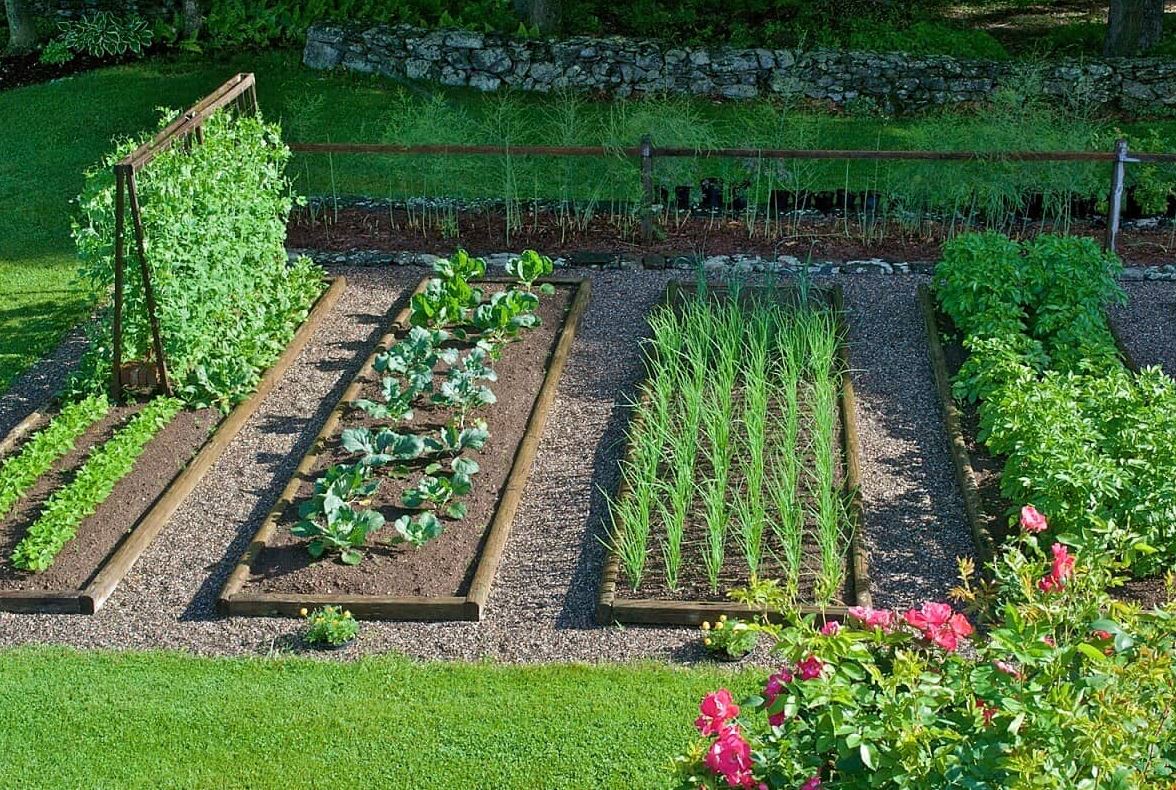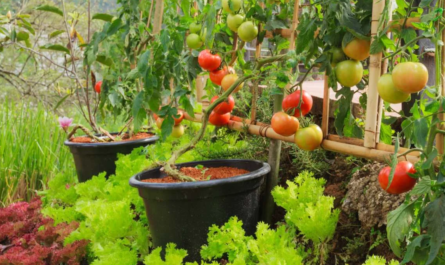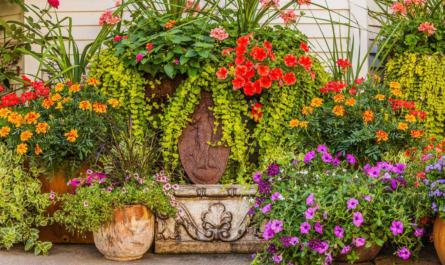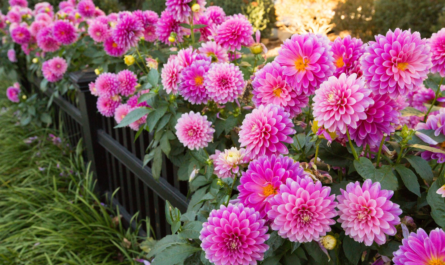Growing plants using natural materials and procedures is known as organic gardening. Organic gardeners improve the environment for plants, beneficial insects, and soil creatures by staying away from synthetic chemicals. This process not only generates wholesome, safe food, but it also improves the ecosystem’s general health. We will discuss the fundamentals and methods of organic gardening in this post, along with some useful advice on how to get started and keep up your own chemical-free garden.
Understanding Organic Gardening
The foundation of organic gardening lies in the ideas of organic agriculture, which place a strong emphasis on using natural inputs rather than artificial chemicals. This strategy emphasizes the development of healthy soil, the enhancement of biodiversity, and the application of eco-friendly techniques. Gardeners may develop a profitable and sustainable garden that supports the natural ecology by grasping these concepts. Beyond just improving the garden, organic gardening also helps to create a better earth, cleaner air, and water.
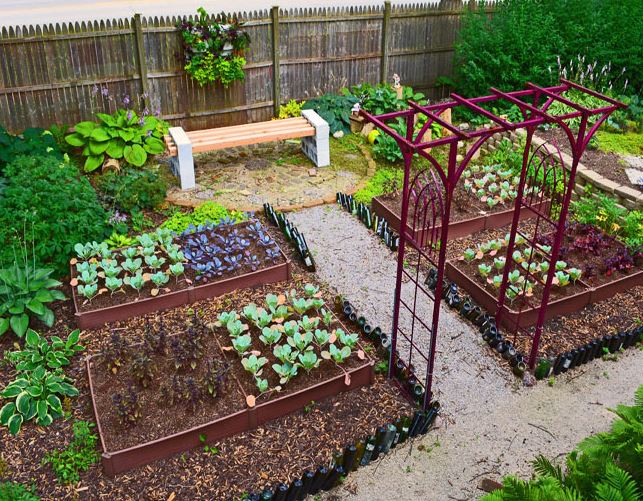
The Foundation of Organic Gardening
The foundation of organic farming is healthy soil. Rich in organic content, soil enhances water retention, nurtures beneficial microbes, and supplies plants with vital nutrients. Gardeners should use organic mulches, cover crops, and compost to create healthy soil. Not only does composting minimize trash but it also produces nutrient-rich compost from kitchen leftovers and garden debris. Legumes and clover are examples of cover crops that improve soil fertility by fixing nitrogen. Organic mulching improves moisture retention, inhibits weed growth, and fosters the ideal growth conditions for plants.
Choosing the Right Plants
The key to a successful organic garden is choosing the correct plants. Select cultivars that are compatible with the soil and climate in your area. Because they are more suited to the local climate and need less care, native plants are frequently the best option. To reduce the need for interventions, search for plant kinds that are resistant to disease. Growing specific plants together for mutual benefit, or companion planting, can also help reduce pests and enhance plant health. For instance, growing basil next to tomatoes can improve their flavor and growth while keeping out pests.
Natural Pest Control
Controlling pests without the use of artificial chemicals is one of the difficulties of organic gardening. Biological controls and prevention are the main focuses of natural pest control techniques. Ladybugs and predatory wasps are examples of beneficial insects that can be encouraged to help control pest populations. Bringing these beneficial insects into your garden is as simple as planting a variety of flowers and herbs.
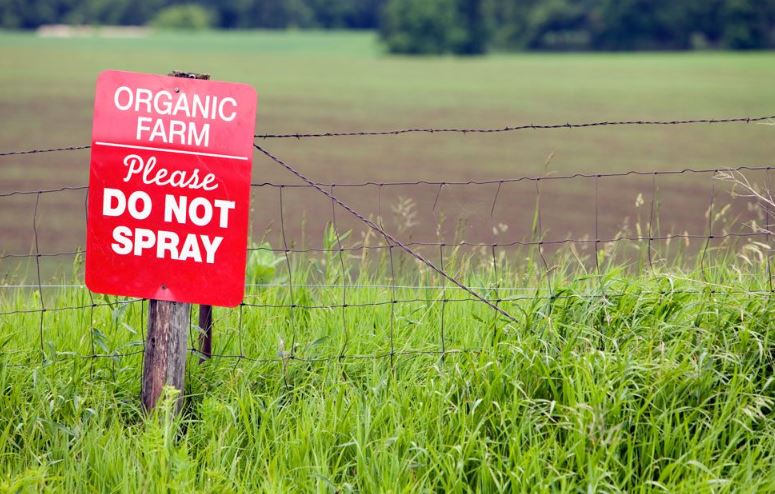
Physical barriers like netting and row coverings can also keep pests away from plants. Managing infestations can also benefit from hand-picking pests and applying natural sprays formulated with neem oil and garlic.
Fertilising Organically
In order to preserve soil fertility and plant health, organic fertilizers must be fed to plants. Compost, manure, and bone meal are examples of organic fertilizers that release nutrients gradually and give necessary elements continuously. Compost enhances the nutrient content and soil structure and is a useful and adaptable fertilizer. When manure is appropriately matured, it enriches the soil with nutrients and organic matter. As a byproduct of animal bones, bone meal has high calcium and phosphorus content, which encourages vigorous root development and flowering. To give nutrients to the soil, cover crops and green manures can also be cultivated and subsequently turned over.
Watering Wisely
One essential component of organic farming is water efficiency. While underwatering can stress plants and lower yields, overwatering can cause root rot and other plant diseases. Plants with deep root systems are more drought-tolerant when they receive frequent, deep watering. Reduce evaporation and runoff by applying water directly to the root zone with soaker hoses or drip irrigation. The surface of the soil can be mulched to assist retain moisture and lessen the frequency of watering. One environmentally beneficial method of conserving water is to collect rainwater in barrels and use it to irrigate your plants.
Composting / Recycling Organic Waste
An essential component of organic gardening is composting, which enables gardeners to turn their organic waste into a useful soil additive. A healthy compost pile is composed of a mixture of brown and green materials, like leaves and straw, as well as kitchen scraps and grass clippings. The decomposition process of the compost pile is accelerated and unwanted odors are avoided with regular turning and aeration. Finished compost is a great addition to garden soil since it is crumbly, dark, and nutrient-rich. Gardeners may lower waste, enhance soil health, and encourage environmentally friendly gardening techniques by composting.
Weed Management
Prevention and hands-on control are key components of organic weed management. Mulching inhibits the growth of weeds by keeping the soil moist and obstructing sunlight. As they break down, organic mulches like wood chips, straw, and shredded leaves contribute organic matter to the soil. To get rid of weeds before they sprout seeds, hand weeding and hoeing are required. Weed competition can also be decreased by maintaining a dense plant canopy through appropriate spacing and cover cropping. For bigger areas, there are times when using a flame weeder or solarization—covering soil with plastic to trap heat and kill weeds can be successful.
Crop Rotation and Polyculture
Crop rotation and polyculture are two methods that improve soil health and lessen issues with pests and diseases. In order to prevent the accumulation of pests and illnesses unique to a certain crop, crop rotation entails switching up the kind of crop cultivated in a given area every season. For instance, switching up legumes with heavy feeders like tomatoes can help restore the nitrogen levels in the soil. Growing many crops together, or polyculture, replicates natural ecosystems and enhances biodiversity. Several plant species can be interplanted to produce a balanced environment, which can lower pest outbreaks and increase overall garden resilience.
Harvesting and Storing Organic Produce
When produce is harvested at the ideal moment, its flavor and nutritional content are maximized. Every crop has a perfect harvest period that is frequently dictated by factors like texture, taste, and appearance. Tomatoes, for instance, should be picked when they are completely colored and just beginning to soften. The best ways to store different kinds of food vary. Although leafy greens are best kept in the refrigerator, root vegetables like potatoes and carrots can be kept in a cold, dark spot. You may enjoy your organic abundance year-round by preserving, freezing, or drying surplus produce.
Sustainable Garden Design best for Organic Gardening
Creating a sustainable garden design entails organizing and putting into action strategies that support ecological balance and resource conservation. When planning your garden, take into account how best to maximize sunshine exposure and reduce water runoff. It is less necessary to use inputs when native plants are used and varied plantings are made to support the local fauna. Effective rainwater collection and utilization can be achieved by using swales, rain gardens, and other water management elements. Enhancing biodiversity and promoting natural pest control are two benefits of creating habitats for birds, insects, and other species. In addition to improving your yard, sustainable garden design also helps to create a healthy atmosphere.
Community and Education
Your community may benefit from you imparting your expertise and experience in organic gardening. Participating in community gardens, attending courses, and joining local gardening groups can help you meet like-minded people and pick up new skills. More people may choose to use sustainable techniques and organic farming if they are educated about their advantages. You may share resources, share ideas, and help each other create a more sustainable and healthy future by organizing a network of organic gardeners.
Conclusion
Growing your own food and creating a lovely garden may be done in an environmentally responsible and satisfying way with organic gardening. You may create a successful garden without the use of artificial chemicals by adhering to the principles of organic agriculture, putting an emphasis on soil health, selecting the correct species, and employing natural pest control techniques. Adopting organic gardening methods is beneficial for both your yard and the environment. Begin your adventure into organic gardening right now and experience the fulfilment of cultivating your own produce devoid of chemicals.
